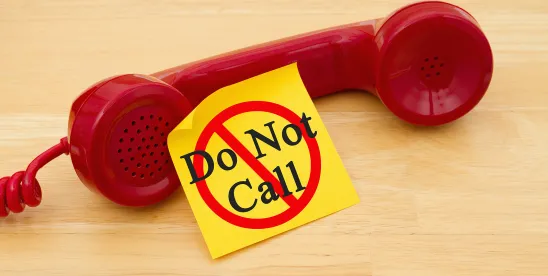So I am here in Austin, TX today preparing to speak with a huge group of mega-brokers for Allstate tomorrow on TCPA issues and particularly the FCC’s new one to one ruling.
The one-to-one ruling re-defines the TCPA’s express written consent rules–which is absolutely critical for brokers (and everyone else that buys leads) to understand.
Under the new rule express written consent can only be obtained for one brand at a time (so a consumer has to agree to separately hear from Allstate, Progressive or Geico) and a caller can only call in connection with that brand’s product. This makes the job of brokers very difficult–they’re supposed to sell the right product for the consumer, but they can only sell the produce the consumer had chosen. Hmmm.
Regardless, the new rule change only applies to express written consent–which is required for calls made using regulated technology–and not for “prior express invitation or permission” which is needed for calls to numbers on the DNC list.
But is there a difference?
Many commenters before the FCC suggested there was not and many court decisions have implied the same over time, but in a new decision out of Florida last week a court disagreed and found there is a CRITICAL distinction between PEWC and PEIP.
In Harrell v. Home Depot USA, Inc., et al. 2024 WL 4188389 (M.D. Fl. Sept. 13, 2024) the consumer filled out a form at a Home Depot location hoping to win a gift card. The form read:
For participation in survey you may be eligible for a gift from our company. If so, you will be contacted by phone. By submitting to terms you give permission for sponsor to contact you be telephone or text message regarding the water awareness campaign even if your name appears on the DNC registry. Some restrictions may apply, no purchase necessary. We will never sell, rent, or share your personal information with any third parties for marketing purposes without your express permission.
Pretty obviously this form does not constitute PEWC as it does not comply with the Troutman 9 (or Troutman Amin 15.) So it would not suffice for regulated technology.
But the calls at issue were not alleged to have been made using an ATDS or prerecorded voice– they were seemingly made manually and the only claim was under 227(c) for violation of the DNC rules.
The question, then, is whether this form constitutes PEIP even though it does not constitute PEWC.
The court held yes!
In the Court’s view: The Eleventh Circuit has stated that the focus of the inquiry is “whether a consumer [would] understand that by providing a [phone] number, he or she is agreeing to receive” communications. Id. at 1101 (quoting omitted). Essentially, the Court must determine if Plaintiff made a clear and unmistakable communication of consent to a proposition that a reasonable consumer would have understood to constitute a request for such permission. Id. Taking the well-pleaded allegations of the First Amended Class Action Complaint as true, including the agreement that Plaintiff admittedly signed, the Court finds that the standard has been met in this case. Accordingly, Count One will be dismissed.
Nice, right?
In reaching this conclusion the court expressly rejected Plaintiff’s argument that the PEWC clear and conspicuous rules apply to PEIP:
Plaintiff argues the disclosure in this case does not meet the requirements of express permission because the disclosure was not “clear and conspicuous.” (Doc. 50 at 5). Plaintiff fails, however, to direct this Court to such a requirement in either the statute or the implementing regulation with respect to claims raised under 47 U.S.C. § 227(c)(5) or 47 C.F.R. § 64.1200(c). While the regulation defines “prior express written consent” to include such a requirement, neither the statute nor the regulation define “prior express invitation or permission” and the provisions under which Plaintiff asserts Count One do not incorporate the prior express written consent standard. 47 C.F.R. § 64.1200(f)(9)(i); see also 47 C.F.R. § 64.1200(c)(2), (f)(15)…
Furthermore, most of the cases cited by Plaintiff with respect to applying such a standard arise in the context of provisions of the statute and regulation that unquestionably require clear and conspicuous statements or consent. Although the claims alleged in Gaker v. Citizens Disability, LLC appear to be the same as those alleged in this case, the Gaker court failed to explain why it utilized the definition of “prior express written consent” in reaching its decision and the FCC guidance the court cites is related to prerecorded and autodialed calls, which, as this Court noted above, are regulated by provisions of the TCPA and its regulations that incorporate the “prior express written consent” standard. Thus, this Court is not convinced that the statement is required to be “clear and conspicuous” within the meaning of the TCPA as argued by Plaintiff and the cases relied on by Plaintiff are inapposite
Perfection!
I am pretty sure this is the first decision ever to expressly hold the clear and conspicuous requirement does not apply to PEIP–but the court undoubtedly got it right! Really nice to see some new law getting made, and just in time for my big presentation tomorrow




 />i
/>i
